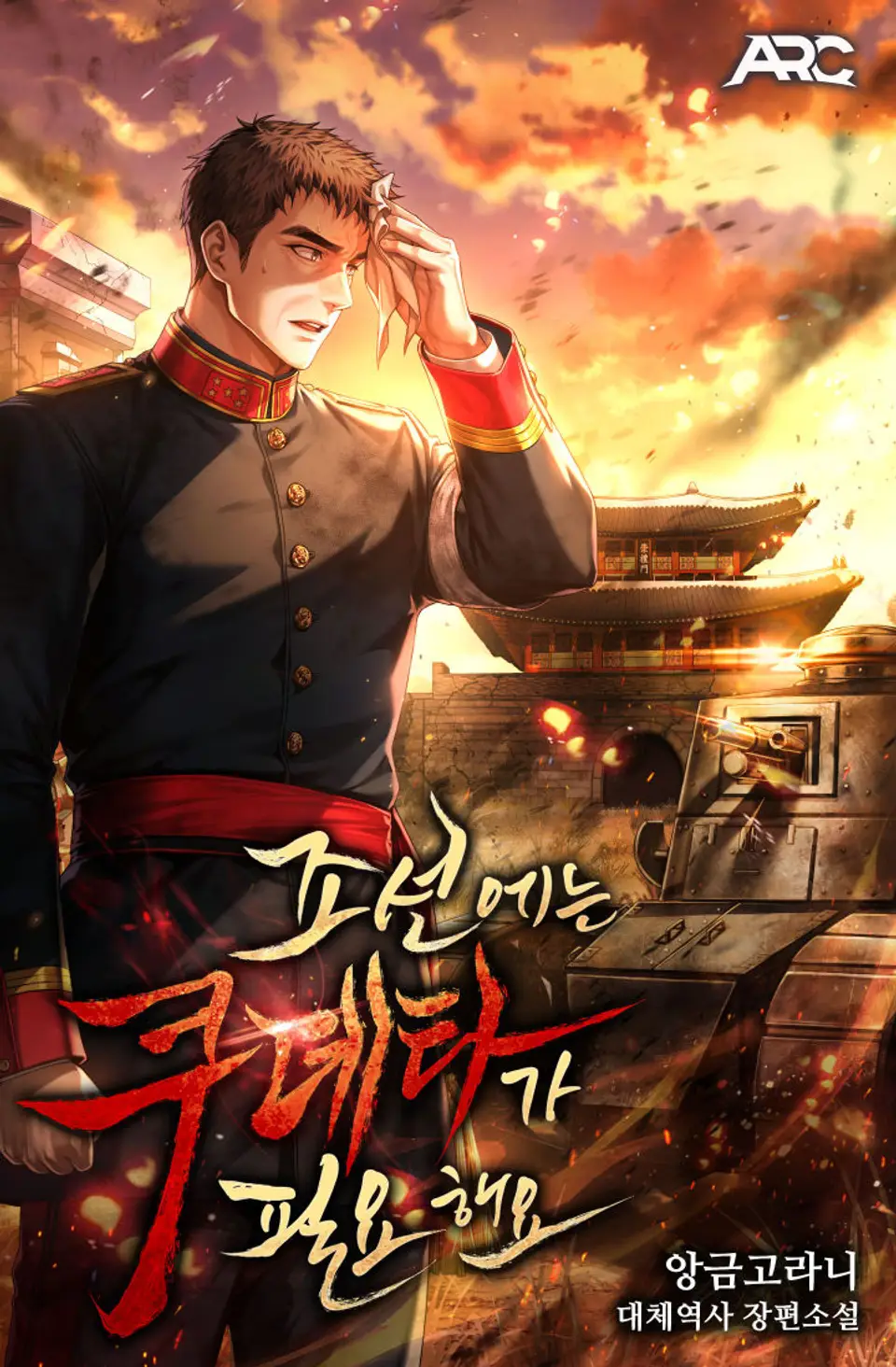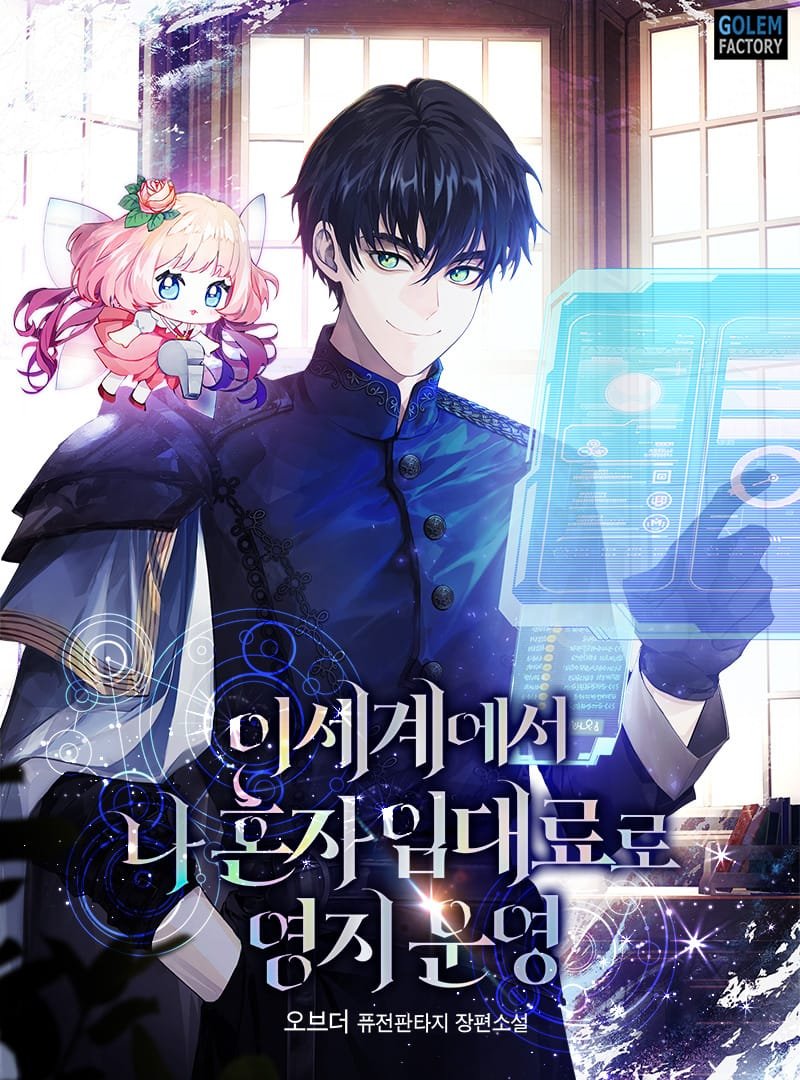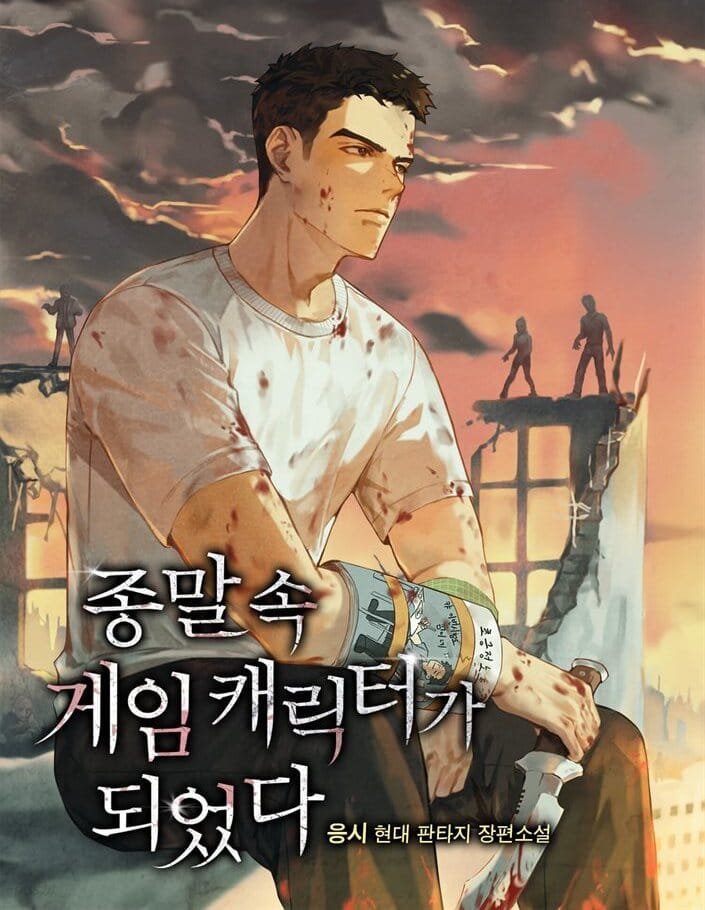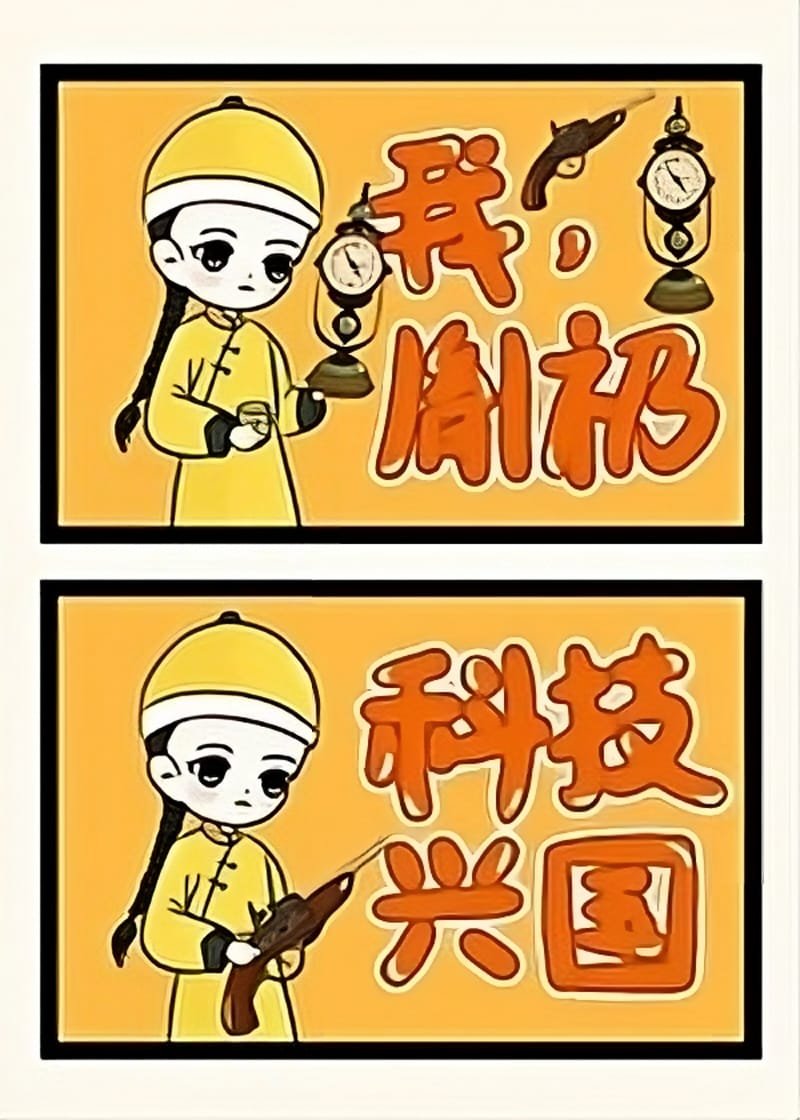Get updated every time a new chapter is released and Get the Passwords to Password Protected Content at our Discord Server -> Click Here to Join now (Protected Content will be available within few days of release)
Chapter 2
At that moment, I could finally feel it—just like a scene from the alternate history novels that my friends devoured like a refreshing soda—I had truly crossed over to that era. And not just any day, but the very day of the Gyeongbokgung Coup.
Strangely enough, my mind sorted through the situation as if I had just entered an Excel formula.
I couldn’t tell whether there was some secretly developed time machine at work or if I was caught in an intense dream. Who knew? Maybe someone had tortured an alien somewhere and twisted the fabric of time and space.
Honestly, it would be much more convenient if, like in a novel, a status window UI popped up beside me.
Regardless of how well the situation was organizing itself in my head, my emotions remained unstable.
I wanted to scream and lose my mind on the spot, but I couldn’t.
Even if I did, it wouldn’t help. It would probably be better to act sane and try to gather information from people around me.
But even if I asked, would they answer? Right now, they were already looking at me as if I were a lunatic.
Watching me groaning and clutching my head, a few gyojang (敎長, a lower-ranking officer in charge of a small unit, similar to a modern platoon leader) clicked their tongues, probably thinking I had completely lost it today.
I hadn’t even had a single drink, yet they must have assumed I’d gone mad.
This definitely wasn’t a dream. Something had gone wrong, and I had dropped straight from 2023 to 1894.
Just a moment ago, they mentioned “jasi”—by rough estimation, that would be around 1 AM. That meant the Japanese forces, having already entered Yongsan, would be executing their operation toward Sungnyemun (Namdaemun) by now.
According to history, the 9th Mixed Brigade’s 11th and 21st Regiments would be advancing, with the 2nd Battalion of the 21st Regiment being the one to actually breach Gyeongbokgung.
“If you were in the position of the Joseon military on that day, how would you stop the Japanese forces?”
Once, during my time in active duty, I had the chance to meet a researcher from the Military Compilation Research Institute.
Back then, he had posed this question to me.
Holding the position of a staff officer at the time, I had responded that if I couldn’t stop the 21st Regiment from breaching the palace, I would engage in attrition warfare within the palace complex to delay them as much as possible.
I had also suggested that, once the Gyeongbokgung Incident became apparent, support might arrive from the military units stationed at Tangchundae in Bukhansanseong or from forces in the outskirts of Seoul. If we could buy enough time for King Gojong to escape, perhaps a political solution could be devised from there.
At that, he had given me a bitter smile and said:
“Defeating a modern military force in open battle is extremely difficult. Let alone against an army that has fully prepared itself for war with the Qing.”
“So you think it’s impossible to stop them?”
“The probability approaches zero. At best, you might delay them for a day or two, but nothing more. The armed occupation of Gyeongbokgung in 1894 was the prelude to the First Sino-Japanese War. Even if the Joseon forces, as your thesis proposes, managed to counter their coordinated pincer attack, in the end…”
His conclusion was that we would inevitably lose.
But I had never fully accepted that.
I had the confidence that something could be done. That if the Joseon military, which had undergone some degree of modernization, could find a way, history might have turned out differently.
Of course, that conversation had been a theoretical discussion among researchers. But now that I found myself in a position where I was commanding a small unit on the actual battlefield, my mind was in turmoil.
“Then did Joseon have any chance to avoid this outcome?”
“Not in the 1890s. But in the early 1900s, under the Korean Empire, things might have been different.”
“The Korean Empire?”
“Especially during the Russo-Japanese War… maybe then…”
A sudden headache struck me. There was something important he had said back then, something crucial—but, as always, I couldn’t remember at the critical moment. It was like the selective amnesia that hit me every time midterms or finals rolled around.
“Are you feeling unwell, naeur*(나으리, an old-fashioned term for addressing a noble or superior officer)?”***
“Huh? Oh, no. I just have a lot to think about.”
I finally looked properly at the person standing beside me. His face was young and tanned, tension clearly written all over it. He was too young to be a soldier, but that hardly mattered now.
Just as I was about to discreetly ask him about the unit I was part of, a distant explosion rang out.
Even the sentries who had been chatting away, the guards stationed under the palace gate, and I, their commanding officer, all heard it clearly.
Some doubted their ears, but the following gunshots quickly made it clear that this was no joke.
Several dull gunshots echoed in succession, and the soldiers could not hide their shock.
“I told you all to tighten security—who was the idiot that misfired?”
A military officer clicked his tongue in annoyance. Others chuckled, joking that whichever unit was responsible was in for a beating. But then, someone with experience shook his head.
“No, this wasn’t a misfire. That wasn’t one of our guns.”
“And how would you know that?”
“Go listen to the gunfire those bastards let off in Yongsan during their so-called training drills. You’ll know instantly.”
A senior gyojang, clearly more experienced than the rest, frowned deeply but did not seem surprised, as if he had anticipated this.
“Naeur, it seems to be the Japanese.”
“Are you certain those aren’t our gunshots?”
“Yes. I was present at their training exercises in Yongsan two weeks ago. The gunfire sounds exactly the same.”
His expression was full of certainty. And that confidence was reinforced by the unmistakable sound of a firefight—exchanges of gunfire typical of a battle. Something was advancing toward the capital. And whoever they were, they had to be the Japanese military.
“It seems the inevitable has arrived, naeur. What are your orders?”
“Enemy attack! Enemy attack!”
Before I could respond, a distant voice shouted the alarm.
Amid the chaos of soldiers scrambling in every direction, my hand tightened around the hilt of my hwandō (환도, a traditional Korean sword worn by military officers).
Though my head still ached from trying to grasp the full situation, the gunfire made one thing clear—I knew exactly what I had to do.
First, we had to stop the silent advance of the enemy toward Gyeongbokgung. After that, I could think about what came next.
Fine. Even if defeat was inevitable, there was a difference between losing after putting up a fight and losing without resistance.
A history professor specializing in the Goryeo Dynasty had once said something similar.
That even during the late Mongol invasions, Goryeo’s ability to repel Mongol and Jin forces in ground battles, however briefly, had laid the groundwork for preserving its sovereignty.
“Those who fight and lose can one day rise again. But those who surrender without resistance will be enslaved forever. Think of the many nations the Mongols faced and destroyed in the 13th century. Goryeo survived because it fought. But the Khwarazmian Empire and others did not.”
If that was true, then could I somehow change the course of history on this day, July 23, 1894?
That desire had always been in the back of my mind.
If I had been there—if I had existed in that moment—what would have happened?
It was an absurd question, one that no historian took seriously, because history has no “if.” But today, I intended to prove otherwise.
If even a tiny variable could shift the tide, could we possibly avoid the tragic modern history that unfolded after 1904?
My heart, which had been pounding wildly, finally settled, and my shattered mental state had stabilized.
“A scholar must have a warrior’s spirit.”
No, perhaps that wasn’t the right saying.
Whatever. There was no one here to correct me anyway.
My hand naturally rested on the hwandō at my waist.
It was time to go wild.
“Do not act recklessly! Sentries, extinguish the lights on the fortress walls!”
That was my response to the gyojang’s question. I could hear the soldiers murmuring among themselves, wondering if I had finally come to my senses after a long time. Well… I must have been quite the lunatic before.
Regardless, at my command, everyone unshouldered their rifles and immediately took up firing positions.
If my memory was correct, Sungnyemun could hold out for about an hour at most. That area still had 300 Jangwiyeong soldiers, along with gatekeepers and sentries stationed at each gate. In total, there were fewer than 500 defenders.
On the other hand, the attacking Japanese 11th and 21st Regiments numbered around 5,000 troops, meaning that holding out any longer than an hour would be nearly impossible.
In other words, since we could expect them to delay the enemy for at least an hour, we had to make full use of that time.
Despite their coordinated pincer attack, the Japanese were already wasting time due to unexpected resistance.
I immediately ordered the soldiers sleeping near Geunjeongmun under Naebyeongjo to be awakened, and I sent a messenger to Byeolgungjikcheong to relay the current situation.
By now, the gatekeepers and soldiers at each gate had probably woken up, but I needed to ensure that the situation was fully understood. The more time we could buy for preparation, even by a minute, the better.
The enemy was aiming for the shock effect of a surprise attack, so I had to counter it by making sure we were as well-positioned as possible.
“And you, go to Geoncheonggung and inform them of the incident. Tell them the enemy has launched an assault on the palace.”
“Yes, understood.”
“And you all… No, never mind. Go check the ammunition and ensure that the hwabyeong (火兵, soldiers primarily responsible for various logistical tasks in the unit, including cooking, general labor, and transporting ammunition) are distributing it properly when needed.”
“Yes, naeur!”
I had considered ordering someone to wake up the Jangwisa, Chongwisa, and Tongwisa from their residences, but I stopped myself.
If I woke them up without proper authority, I could later be punished for attempting to mobilize troops arbitrarily. And that would be severe punishment.
In the late Joseon military, the Gunyeongjeolmok system designated distinct defensive zones for each military unit within the capital and palace.
Each unit’s territory was strictly defined, and crossing into another unit’s zone required authorization from a commander with military command authority.
For example, the Minister of War (Byeongjopanseo) or the King himself could give such orders. Otherwise, orders had to be relayed through messengers in real-time.
Naturally, this structure was intended to prevent military rebellions within the capital. King Gojong, in particular, would have worked to establish military control under the traditional Gunyeongjeolmok system.
After all, military uprisings like the Imo Incident (1882), Gapsin Coup (1884), and even the Eulmi Incident (1895) had all resulted from a failure to control the military.
Because of past rebellions that targeted the capital and palace, instead of operating as a single unified force, units such as Jangwiyeong, Tongwiyoung, Gyeongnicheong, and Giyoungbyeong had their commands separated. They were structured to defend Seoul and the palace separately.
This was effective for protecting the regime’s stability, but in a coup situation like this, it severely hindered our ability to mount a strong defense.
And that was exactly the problem we were facing now.
There was no one in Hanyang who could consolidate the remaining military forces into a single operational command.
The newly appointed Minister of War, Kim Hak-jin, had not yet arrived in the capital, and the previous Minister, Min Yeong-jun, had likely gone home and was sleeping.
Meanwhile, Jangwisa Hong Gye-hun, who had experience leading a mixed unit, had long since relinquished his role as Yanghochotosa (Provincial Military Commander), so he lacked the necessary authority. The other generals and officers were in the same position.
“They say Hanyang has 12,000 troops on paper, but…”
I sighed to myself.
Of those, the only immediately deployable forces were:
- 300 Jangwiyeong soldiers currently on duty at Gyeongbokgung
- 200 Gyeongnicheong soldiers stationed at Naebyeongjo
- 500 to 700 Giyoungbyeong troops
That was all.
Even this was an increase from normal peacetime defenses. Normally, only 200 to 400 soldiers were stationed at the palace.
In total numbers, we were roughly equal to the incoming Japanese force—but the differences were stark.
Our biggest weakness? Mobility.
The Japanese forces had tactical flexibility—they could concentrate their forces at key points to break through our defenses, while we were forced to defend fixed positions.
At this moment, the best possible course of action was to prevent the Japanese from breaching Gwanghwamun.
If we were lucky, we might buy more time than in recorded history, allowing us to maintain formation and summon Minister Min Yeong-jun to organize a defense.
Or, if things went badly, at the very least, we could evacuate King Gojong to Bukhansanseong.
Right now, the best decision I could make was to inform Jangwiyeong Jeongryeongwan Hong Gye-hun at Geoncheonggung about the attack.
Since he was highly respected in the military and had tactical insight, he might grasp the situation quickly and respond accordingly. More importantly, he was the highest-ranking officer currently in charge of Gyeongbokgung’s defense, meaning he was our best hope for emergency coordination.
“Inform the Giyoungbyeong troops at Yeongchumun. Tell them the Japanese are coming—prepare for battle.”
“Yes!”
The Giyoungbyeong were elite soldiers from Pyongyang—or at least, that was what I had heard. Andong Prefect Min Yeong-sun had personally led them here, choosing to remain in Gyeongbokgung for a month instead of returning home.
Most Giyoungbyeong had been deployed to Jeonju to suppress the Donghak Rebellion, but these troops had been a separate detachment from the beginning.
I believed they would hold their ground.
A French diplomat or some foreign official had once written about them, saying:
When those fierce Pyongyang soldiers arrived, the riots in Seoul died down, and peace was restored in an instant.
A short while later, the returning messenger reported to me.
“The troops at Yeongchumun will hold their position to the best of their ability.”
“Are they already prepared?”
“Yes, naeur. They were already awake and positioned on the fortress walls.”
That was a relief. If Yeongchumun didn’t fall easily, we could buy some time.
I told the messenger he had done well and climbed back up onto the wall. Soldiers belonging to various units were busy hauling paper ammunition cartridges up onto the ramparts.
The soldiers who received the cartridges tore them open roughly, stuffing the rounds into their cartridge belts or, for the more experienced ones, scattering the bullets in easy-to-reach spots.
Typically, each soldier was issued between 20 to 40 rounds, but that wouldn’t be enough, so I ordered more to be brought up. The fact that these paper cartridges were covered in English writing gave me a strange sense of dissonance.
Once we had gathered all the ammunition from the Military Office (Gunsabang) and Gatekeeper Command (Sumunjangcheong), we had just about enough to withstand several waves of attack.
In modern warfare—or even just a couple of decades later, during World War I—this amount would have been consumed in no time. But for now, it was a decent stockpile. The ammunition stored in the palace alone amounted to several tens of thousands of rounds.
Just then, the lights inside Geoncheonggung went out—perhaps the messenger had arrived.
It was said that a power plant had been built near Hyangwonjeong at great expense, and it seemed they had been making good use of it.
I recalled reading a paper on Korean science history mentioning that around May 1894, a second power station had been completed inside the Gyeongbokgung Armory.
The palace must have needed bright lighting at night for security reasons, but beyond that, it seemed they were using the extra power for various purposes.
Regardless, with the lights now out, Gyeongbokgung was shrouded in complete darkness.
Only the sounds of soldiers hauling ammunition and flags fluttering in the wind filled the air.
“So they really were using Remingtons…”
“Huh?”
“Nothing, never mind.”
I let out a small chuckle.
There had been heated debates in online communities over whether Joseon soldiers at this time had used Remington Rolling Blocks or Mauser rifles.
I had always believed it was Remingtons, and now, seeing it firsthand, I found it amusing that I had been right.
Of course, if I ever talked about this when I got back, people would probably think I was insane…
“At least they’ll be easier to fight than those Donghak rebels, right?”
“Those bastards rushed at us screaming about “Si-Cheon-Ju”, it was pure chaos.”
“It was terrifying. No matter how many we killed, they just kept coming. If we hadn’t had the Hweseonpo (回旋砲, Gatling gun), we would’ve been wiped out…”
…It seemed many of these soldiers had fought in the Battle of Jeonju Fortress.
That explained why, as soon as I gave the order, they instinctively took cover behind the ramparts after readying their rifles.
Apart from the Giyoungbyeong, the Jangwiyeong was the most reliable military unit in Seoul.
They had been trained at Yeonmu Park by Brigadier General Dye and Ninstedt from the American military advisory group. They were a European-style unit, meant to function as the royal guard.
As long as they knew how to hold their formation and follow orders while carrying a rifle, they could at least put up a fight.
“Do not fire without orders. With your rifles, you can repel the enemy approaching this place.”
The gyojang moved among the soldiers, ready to relay commands at any moment.
Meanwhile, the gunfire grew closer.
As ammunition was distributed and troops were repositioned, the Jangwiyeong defenses at Sungnyemun had apparently collapsed.
I could see soldiers who had been defending Sungnyemun now fleeing toward the Jangwiyeong garrison near Gyeongbokgung.
And beyond them, Japanese troops advancing in formation, marching toward us.
“I-It’s the Japanese…”
A gyojang standing to my left instinctively reached for his sword, his hand trembling.
Though it was too dark to see clearly, I could tell there was fear on his face.
Well, even if I couldn’t see them clearly, it wasn’t hard to tell that no one else in this area could have mobilized such a large force.
Historical records indicated that the entire main force of the 21st Regiment had advanced toward Gwanghwamun, and now, seeing them approach in person, their scale was truly overwhelming.
At least they hadn’t brought along the artillery from the 9th Mixed Brigade stationed at Waeseongdae—that was the only small mercy.
“Do not panic. Hold your positions.”
“There are too many of them. Can we… really hold this place with just us?”
To be honest, even I wasn’t sure.
In recorded history, Gyeongbokgung had fallen in the end.
But I recalled something that my brigade commander had once told us during my time in active duty.
It was in response to a question about how to win on the battlefield, and how he had managed to decisively turn the tide at KCTC (Korea Combat Training Center) during two engagements against the opposing force.
“If you want to win on the battlefield, you—the junior officers—must create variables and control them. That will open the path forward.”
I intended to become that variable.
If someone could control the chaos I created, maybe—just maybe—the path ahead could change.
Perhaps, even in this timeline, the history books yet to be written might turn out differently.
“Let them come.”
I muttered as I unsheathed my hwandō from my waist.
The gyojang, sipjang, and soldiers around me all turned their gazes toward me.
“The Japanese will never break through this place.”
What I had just said was eerily similar to what a Brazilian lieutenant colonel had once declared during the Paraguayan War, when his troops had stood against a massive offensive by the Paraguayan army.
Back then, the Brazilian soldiers had fought desperately and successfully halted the enemy’s advance.
I was hoping for the same outcome.
No—even if we lost, I at least wanted to strike a painful blow against these bastards.
Maybe that was my real motivation.
And so, in the early hours of July 23, 1894, it was not the morning sun that would light up the battlefield—
But the small bursts of flame from rifle muzzles.







![Rescuing the Sadomasochistic Worlds [Quick Transmigration]](https://transcendentaltls.com/wp-content/uploads/2024/11/42541s-1.png)

![The Supporting Male Protagonist Becomes Life’s Winner [Quick Transmigration]](https://transcendentaltls.com/wp-content/uploads/2024/08/nv-3.png)

